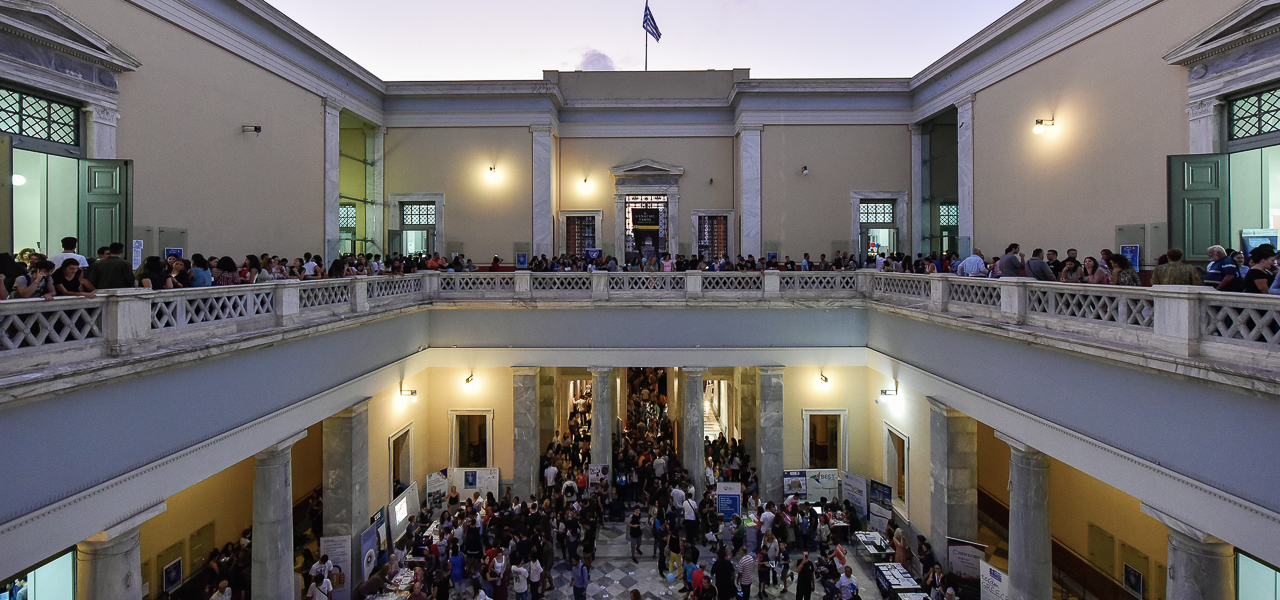Since 1998, the School of Architecture co-ordinates two Interdisciplinary Postgraduate Programmes: "Architecture – Spatial Design" and "Protection of Monuments", in collaboration with other Schools of the NTUA (Civil Engineering, Applied Mathematics and Physics, Surveying and Mechanical Engineering). In each of these Programmes there are two parallel options (see description below). These programmes lead to a Postgraduate Degree of Specialisation , after the completion of a number of requirements which include taught courses and seminars and submission of a postgraduate thesis.
The international dimension of the Programme of Postgraduate Studies constitutes in distinctions such as Prizes in competitions and also participations of post graduate courses in international university workshops, conferences, exhibitions and publications. Many of he completed dissertations have been awarded prizes and distinctions and, it goes without saying, they are followed by a series of scientific publications.
Programme 1: Architecture - Spatial Design
The Programme offers two divisions: “Research in Architecture: Architectural Design - Space - Culture” and “Urban and Regional Planning”.
Each of them offers a broad range of courses as described in the corresponding webpages. In order to qualify for the degree, students have to take 8 courses, two of which can be chosen from a postgraduate Programme other than their own. Evaluation is based on participation in class, a final written paper, orally presented at the end of term, and, in many cases, students’ contribution to literature review seminars. Students are encouraged to choose courses which contribute to their research focus and aims and to the composition of the postgraduate thesis. The latter is submitted after the successful completion of the courses and examined by a three-member committee.
Division A: “Research in Architecture: Architectural Design - Space - Culture”
Division B: “Urban and Regional Planning”
Programme 2: Protection of monuments
The Programme offers two distinctive directions
(a) Conservation and Restoration of Historic Buildings and Sites
(b) Conservation of Building Materials.
It includes lectures, seminars and tutorials carried out individually in parallel with the equivalent lectures. Additionally, students have to complete five individual projects and carry out an individual dissertation. The active involvement in research is considered an integral part of the studies. The whole programme includes core lectures and seminars, on: Historical review of conservation theory and philosophy, historic structure techniques, recording and surveying methods, evaluation criteria, etc, pathology of monuments and building materials, deterioration causes, environmental impact assessment, conservation and restoration techniques, selecting materials strategy, earthquake protection, urban conservation and sustainable development, protecting landscape and natural environment, regional planning and architectural heritage, new architectural interventions in historic entities, international and Greek legislation and regulations, European Union and cultural heritage.
The programme also includes optional lectures, on: special issues concerning archaeological research and management, museulogie, industrial heritage, etc
For more information on the aforementioned programmes, please contact the Office of Postgraduate Studies and Research

